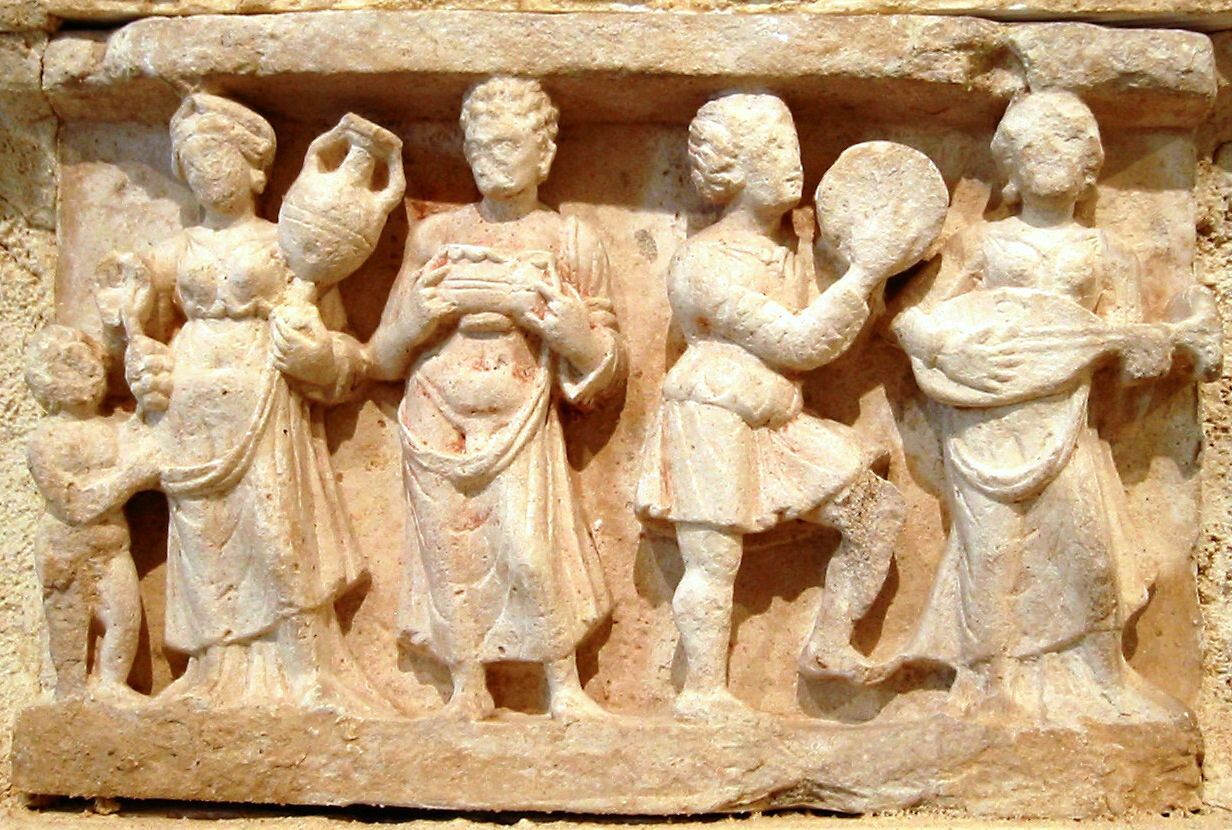The Learned Banqueters by Athenaeus (written in 195 A.D.) is a hilarious potpourri of ancient trivia, full of advice for the gourmand, including recipes and emetics. It’s a two-thousand-page disquisition on food and on the poets, who mention food.
For example, the learned banqueters—while eating all day and discussing literature—ask whether citron was ever mentioned by the ancients:
“Myrtilus asserted . . . that Hegesander of Delphi refers to the fruit in his Commentaries, although he was unable to remember the exact words. Plutarch contradicted him and said: No, I am certain that Hegesander never mentions citron, because I read all his Commentaries for precisely this reason.”
Imagine reading an author’s entire output to see if he ever mentions citron! This hunt for the trivial is at the heart of The Learned Banqueters, and we are lucky the hunt was made.
Many ancient poets who otherwise would be wholly lost survive in a few fragments in this voluminous compendium, and most scholars of ancient Greek read the book solely for this purpose.
But I enjoy the book for its charm.
Plutarch’s hunt for citron in the Commentaries of Hegesander is a magnificent metaphor for the fruitlessness (or fruitfulness, depending on one’s perspective) of our daily searches for trivial enjoyment.
I ask: what is a moment of pleasure worth? Is it worth a fig?
As Athenaeus says, quoting the poet Ananius:
If someone were to shut up a lot of gold, a few figs,
And three or four people in a house,
He would find out how much better figs are than gold.
* Orlando Bartro is the author of Toward Two Words, a comical & surreal novel about a man who finds yet another woman he never knew, usually available at Amazon for $4.91.











